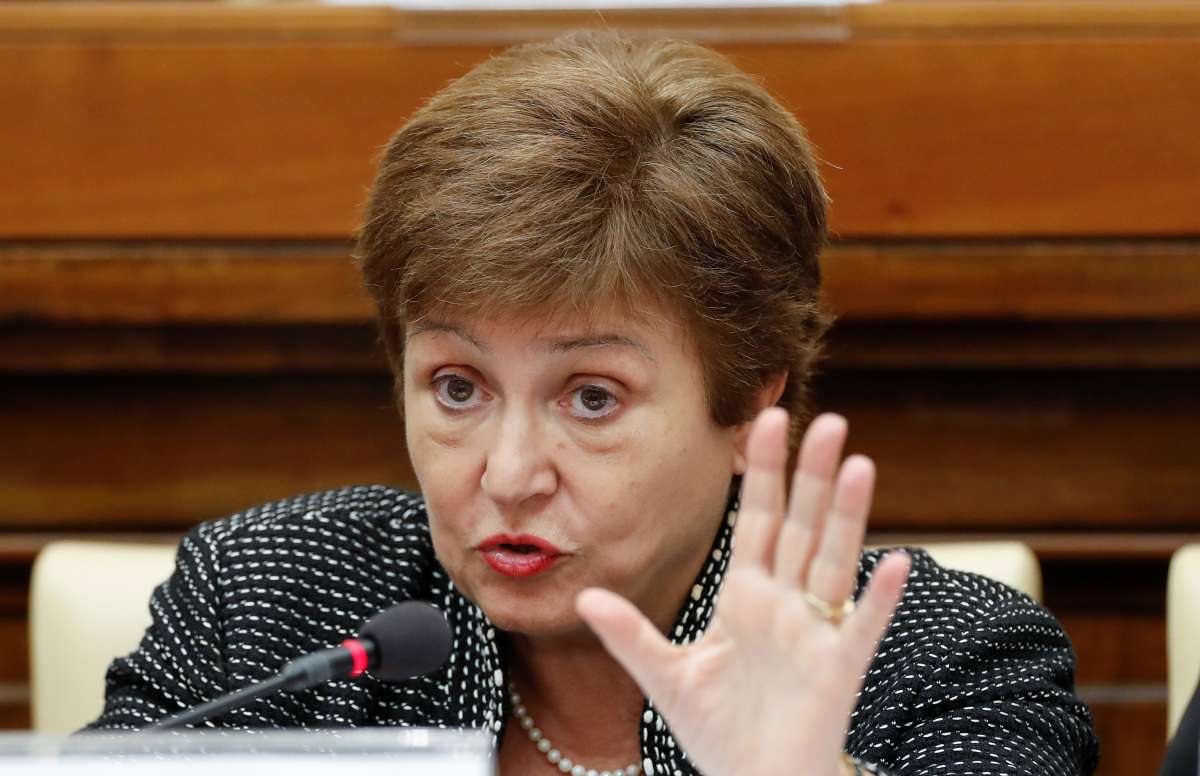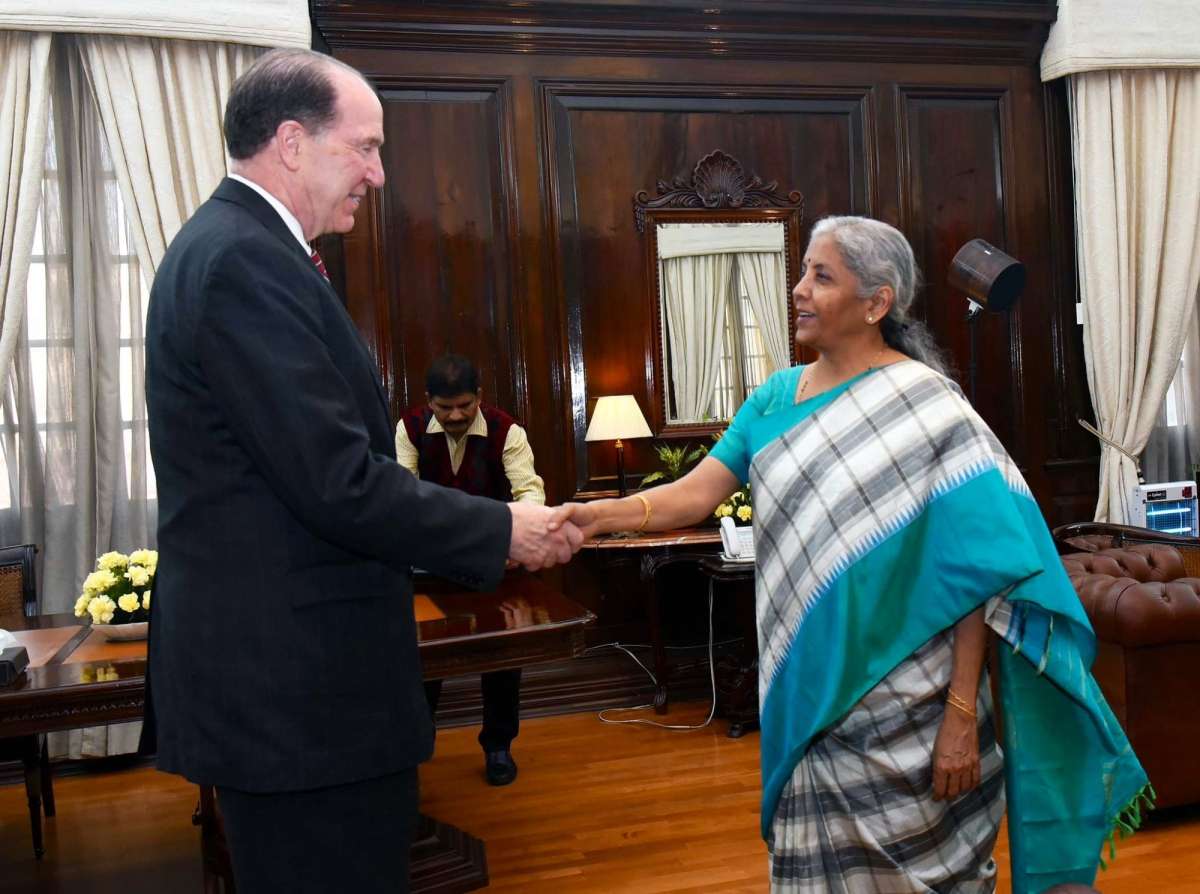In most countries, Georgieva said targeted measures needed to be coupled with gradual fiscal tightening to rebuild buffers and ensure debt sustainability…reports Asian Lite News
International Monetary Fund Managing Director Kristalina Georgieva on Wednesday said at a time of heightened uncertainties for the global economy, India’s strong performance remains a bright spot.
“So, it’s fitting that Group of Twenty finance ministers and central bank governors will gather in Bengaluru this week,” Georgieva said in a blog on Wednesday, Speaking about growth in 2023, she said this would be another challenging year. “But it could represent a turning point–with inflation declining and growth bottoming out. Indeed, while our latest projections show global growth slowing to 2.9 per cent this year, we anticipate a modest rebound to 3.1 per cent in 2024,” she added.
Looking behind the headline numbers, the MD said the IMF sees emerging market and developing economies providing much of the momentum. “We expect them to account for about four-fifths of global growth this year, with India alone expected to contribute more than 15 per cent.”
But beyond its role as a global growth engine, “India is uniquely positioned to bring countries together,” Georgieva said, adding, “In a world facing multiple challenges and rising geopolitical tensions, this leadership is critical–and beautifully captured in the theme of India’s G20 presidency: One Earth, One Family, One Future.”
She said the reality is that growth is still subpar and price pressures are still too high and added that after three years of shocks, too many economies and people are still hurting badly.
Around the world, many households struggle to make ends meet because of the high cost of living, Georgieva said, adding that “Millions cannot afford fuel for heating or cooking. Successive shocks have increased poverty, jeopardising decades of progress. And, notwithstanding some easing in food prices, a record 349 million people in 79 countries face acute food insecurity.” She said supporting the vulnerable is vital in all countries.
The MD said, “Fiscal measures should be temporary and laser-focused on protecting those who are most in need — always good practice, but even more important as countries grapple with increasingly limited resources and higher debt.”
In most countries, Georgieva said targeted measures needed to be coupled with gradual fiscal tightening to rebuild buffers and ensure debt sustainability.
Meanwhile, bringing inflation back to target remains imperative. She said, “To get there, policymakers need to stay the course on monetary tightening. Aligning fiscal and monetary policies will help.” She said clear communication of these policy goals is vital to avoid a sudden repricing in financial markets.
Georgieva said, “While the global tightening cycle is necessary to ensure price stability, policymakers must be mindful of adverse spillovers to emerging and developing economies–including through a stronger US dollar and capital outflows.”
“While financial conditions have improved since the G20 last met, providing some modest relief, we have seen how higher borrowing costs exacerbate the vulnerability of economies with heavy external debt burdens,” the IMF chief said.
To accelerate debt restructuring efforts, “the IMF, World Bank, and India’s G20 presidency are convening a new Global Sovereign Debt Roundtable,” The IMF chief said, adding that, “This week in Bengaluru, we will meet in-person for the first time–and pave the way for creditors, both public and private, and debtor countries to work together, assess the existing shortcomings and best ways to tackle them.” (ANI)









